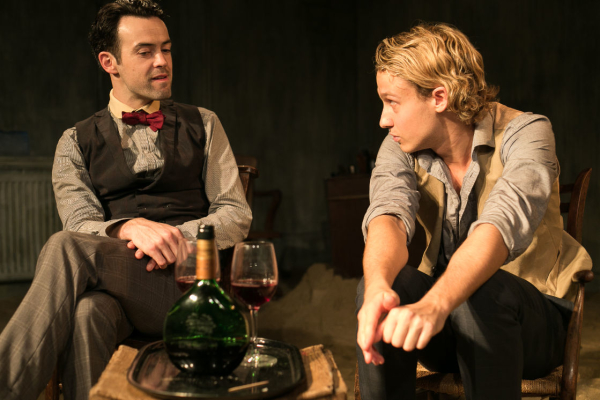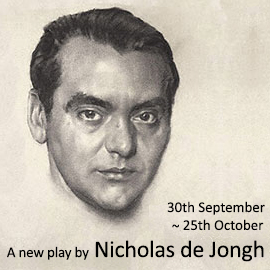The Unquiet Grave of Garcia Lorca (Drayton Arms)

© Ed Clarke
De Jongh's play isn't glib, gratuitous, cheap or unpleasant – problems that usually raise my hackles – it's in the much rarer sub-category of being simply inept; a play from which character, metaphysics and narrative propulsion have all been carefully distilled. And then removed.
Nominally an investigation into the final days of the life of poet Garcia Lorca, executed in July 1936 on the eve of Spain's civil war, the play seems less interested in recovering its hero or his milieu, than in its narrative frame, set 60 years later, in which an English theatre critic (natch) tracks down Lorca's last lover.
Although it seems likely that Lorca was executed by Franco's Nationalists because he was regarded as a communist sympathiser, his body was never recovered, and both sides subsequently claimed him as a hero for their cause. (For their part the Nationalists claimed Lorca was murdered by a jealous lover, a nonsense de Jongh quite fairly doesn't bother with.)
"The writing consists almost exclusively of melodramatic cliché"
Lorca's legacy was further complicated by the later public repression of his sexuality by his family. Indeed it's only against this propaganda, mentioned in passing, that any passion threatens to bubble through the dramatic sludge. It seems an oddly displaced anger symptomatic of the play's strange priorities.
In an unfortunately suggestive opening scene two characters (never again encountered) inadvertently exhume the poet's body in the garden of their holiday villa; only to rebury it in a depressingly successful bid to avoid any controversy. After throwing out the baby of an intriguing premise, the play duly wallows for the rest of the evening in the bathwater of historical exposition, unconvincing romance and regretful maunderings.
Sounding like a dogged translation of something hefty and continental, the writing consists almost exclusively of melodramatic cliché, thudding epigrams and rhetorical questions. Several scenes seem to follow a pattern in which characters at first hint at the historical context (good) then describe the context in full (bad) and then explain precisely how the other characters will feel about the implications of this wider appreciation of the context (horrible).
Yet though the script is torpid, the audience experience is made far worse by Hamish MacDougall's direction, which doesn't do nearly enough to distinguish between the script's numerous peripheral characters (most of the cast take several roles), squeezes large amounts of the action into a far corner of the room for no reason, and overlays several scenes with a pointlessly intrusive soundtrack.
Though the play's depiction of Lorca is scarcely bowtie deep, Damien Hasson brings some integrity to his portrayal of the poet, and Matthew Bentley, in his professional debut will surely move onto better things. Nevertheless, for the most part the cast are as dynamic and happy-eyed as turbot in a fishmongers' window. A slog. Avoid.
The Unquiet Grave of Garcia Lorca continues at the Drayton Arms until 25 October











